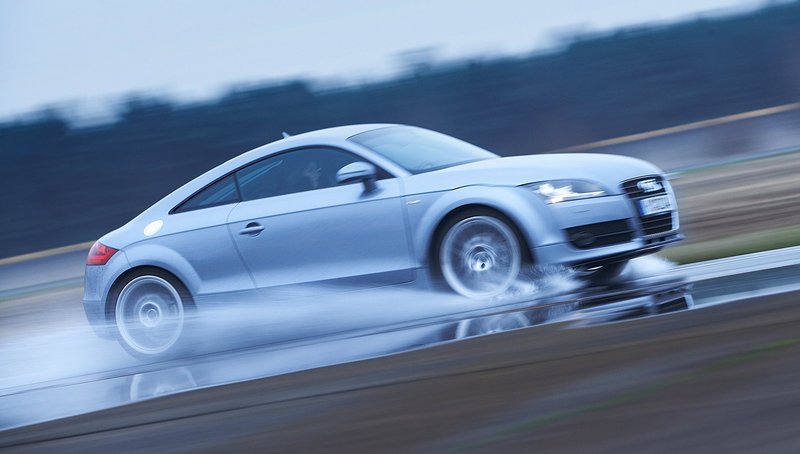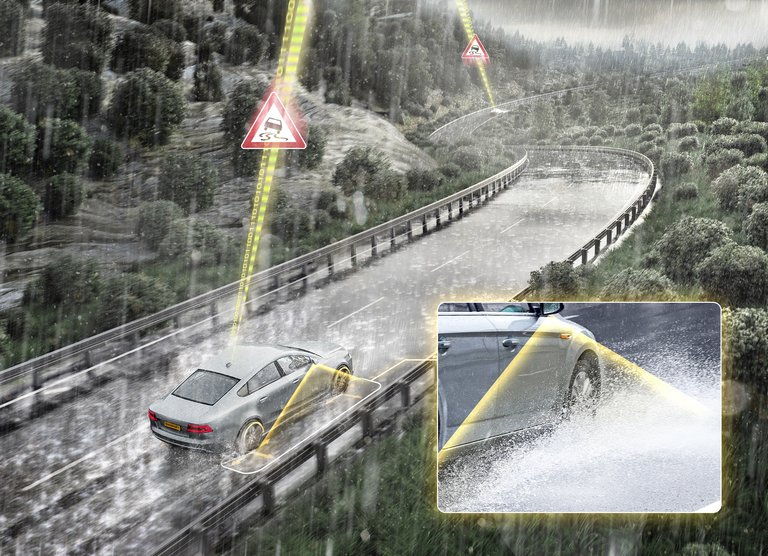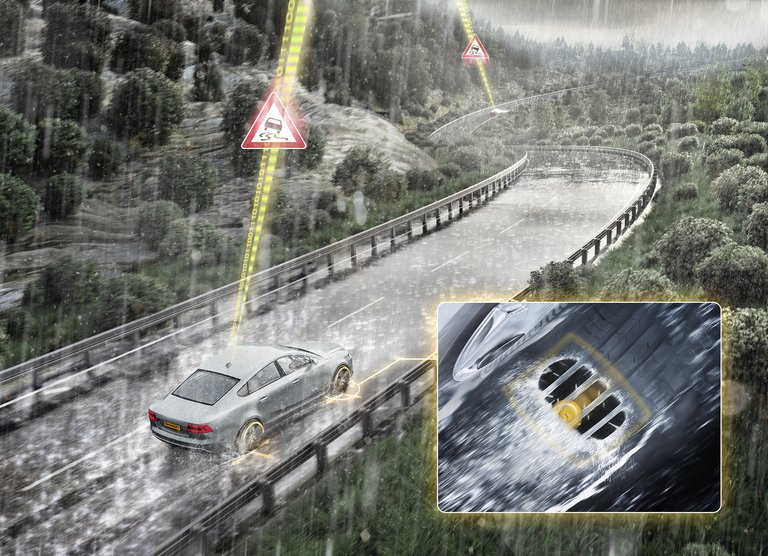Continental Develops Aquaplaning Warning System
- In future, software will detect the risk of aquaplaning in time and avoid accidents and frightening moments
- Technology company Continental uses networked cameras and tire sensors with intelligent software for detecting imminent aquaplaning
- Production conceivable in the next generation of vehicles
Hanover/Frankfurt/Toulouse, April 12, 2018. Technology company Continental is working on an automatic system to warn of the risk of aquaplaning. This loss of grip on extremely wet roads dramatically reduces the ability to control vehicles and presents a major accident risk. In future, the aquaplaning warning system based on camera data and tire sensor data will detect impending aquaplaning situations early on. This means that drivers will be warned in time and can better adjust their speed in advance. An initial production of the technology, which is currently in predevelopment, is conceivable in a next generation of vehicles, according to the Continental technology experts. The hardware and software for the aquaplaning warning is being developed by Continental engineers in Frankfurt, Hanover and Toulouse.
“Even with the best tires, sudden aquaplaning is always a frightening moment and can mean the danger of an accident. We are developing a high-performance technology based on sensor information and software that detects a potential risk of aquaplaning and warns the driver in time,” explains Frank Jourdan, member of the Continental Executive Board and head of the Chassis & Safety division.
In relation to further research into the aquaplaning effect and the development of the aquaplaning warning system, Continental points to the importance of sufficient tread depth for road safety. As aquaplaning depends on the tread depth of the tires, the depth of the water on the road and the driving speed, Continental recommends renewing summer tires with a remaining tread of three millimeters. If the tread depth is any less, there is a much higher risk of aquaplaning. Experts generally advise drivers to reduce their speed on wet roads and in rain.
Cameras are the key to early warning of aquaplaning
Aquaplaning occurs when the tread cannot quickly enough deflect the water from the road. To detect this excessive water displacement, Continental relies on images from the surround-view cameras. These wide-angle cameras are installed both in the side mirrors, the grill, and on the rear of the Continental development vehicles. “When there is a lot of water on the road, the camera images show a specific splash and spray pattern from the tires that can be detected as aquaplaning in its early phase”, explains Bernd Hartmann, project manager at Continental in Frankfurt.
Tire sensors feel risk of aquaplaning
In addition to the camera data, Continental also plans to use information from the tires to identify the risk of aquaplaning. Here, the sensor signals will be analyzed directly in the tires. “We use the accelerometer signal from the electronic-Tire Information System to look for a specific signal pattern”, explains Andreas Wolf, head of Continental's Body & Security business unit. As the eTIS sensor can also identify the tire’s remaining tread, this data can be used to determine a safe speed for specific wet road conditions and pass this on to the driver.
In future, it will be possible to evaluate all sensor data in a central vehicle computer for the aquaplaning warning system. If the system detects a danger at the current speed, the driver will be notified of a safe speed. This is where vehicle connectivity has its ace in the hole. Vehicles that are still far behind a potential aquaplaning spot can be informed of the danger immediately via the vehicle-to-vehicle communication and the digital map based on the electronic horizon. This is how the traffic control systems also receive information about relevant danger areas.
The aquaplaning warning system is especially important for automated vehicles. They must avoid aquaplaning situations without human driving experience. Therefore, for Continental the aquaplaning warning system for manually and automatically controlled vehicles is another step forward on the road to Vision Zero – road traffic without accidents.

Sören Pinkow
Media Spokesperson Autonomous Mobility and Commercial Vehicles
AUMOVIO

Sebastian Fillenberg
Head of External Communications
AUMOVIO



